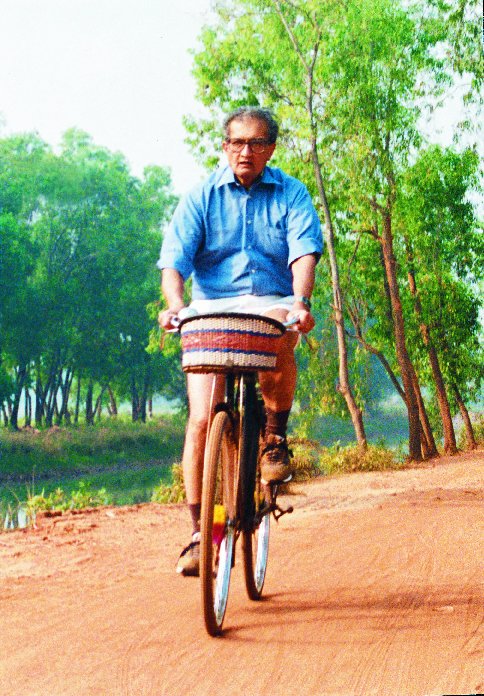Bhubaneswar: Amartya Sen’s bicycle was an unlikely but essential tool in his groundbreaking research on gender inequality in India. The Nobel Prize today posted in its X Platform.
Amartya Sen’s bike played a key role in research on differences between baby boys and girls. After his assistant was bit by a child who resisted being weighed, Sen cycled through the countryside of West Bengal, weighing the children himself. What will the 2025 economic sciences prize award?
The incident that propelled him onto two wheels occurred in the early 1980s in a remote part of rural West Bengal. Sen’s research team was attempting to gather anthropometric data, specifically the weight-for-age of young children, to study nutritional and health differences between baby boys and girls.
His assistant, while trying to weigh a particularly resistant child, was bitten. Realizing the resistance to being weighed by strangers, and the difficulty of collecting accurate, sensitive data on child health, Shri Sen took a different approach.
Instead of relying on his team, he began cycling through the countryside, visiting the villages himself. Shri Sen’s personal cycling trips made him a familiar figure, helping him build rapport and trust with the local families that was crucial for the work. His hands-on approach, often working in a less intimidating manner than a formal team, allowed him to collect the necessary weights.
The data he gathered by this unique, bicycle-enabled fieldwork directly contributed to his work on “missing women.” The research revealed that, though baby boys and girls were often born at the same weight, by the age of five, boys in the community had significantly overtaken girls in weight-for-age.
This finding was a key piece of evidence, demonstrating that the higher mortality rates for girls were not due to biology, but rather to systematic discrimination in access to food, medical care, and overall attention. This personal, physically demanding research later cemented his global contributions to development economics and social justice, for which he would eventually receive the Nobel Prize.


